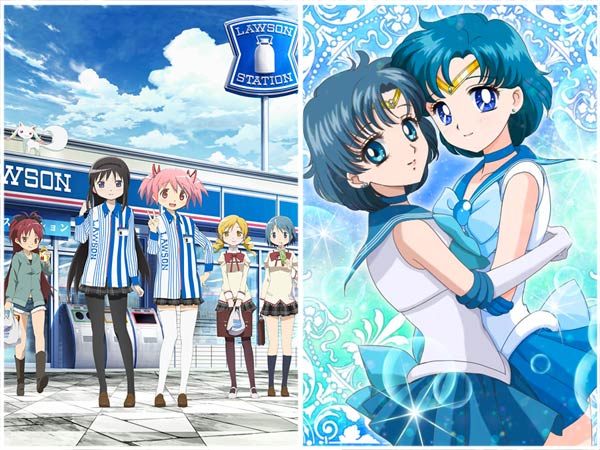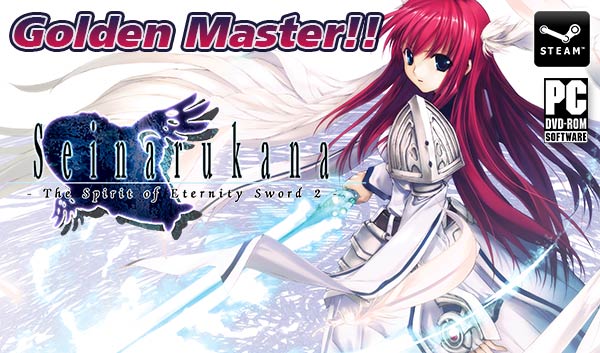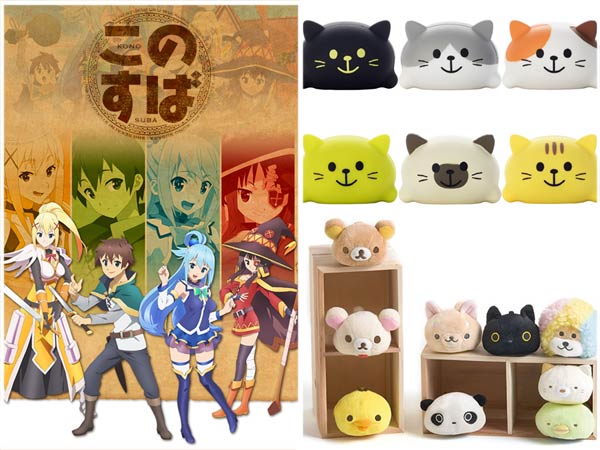One of the good things about Japan is the country’s many conbini (convenience stores), where you can get everything from steaming hot meat buns to onigiri rice balls to pre-cooked foods that are actually worth eating. In addition to milk, beer and 72 varieties of bottled Asian teas, you can buy tickets to concerts and other events (we do this for the Ghibli Museum ticket buying service we offer), plus banking services. The story of convenience stores in Japan began in 1973 when supermarket executive Hideo Shimizu drove across the U.S. looking for new business opportunities and got the idea of bringing the 7-Eleven convenience store model here. Like Aflac’s fabulously successful expansion into Japan, it was one of the best business decisions of the 20th century, and the Japanese licensor grew so large it now owns the parent company in the U.S. These days anime and convenience stores work closely to cross-market themselves, since young otakus always go to convenience stores, and it’s common to see special events like a Love Live Fair with limited products for sale at Lawson or 7-Eleven.
Languages are hard to learn, and when I was an ESL teacher it was a challenge to help my students understand why certain grammar worked the way it did. We take prepositions like on, in, at etc. for granted in English, but they can be quite hard for ESL students to master. (I learned that teaching these words using the “I am sitting/in the morning/at the diner/on the corner” song was effective.) Another problem area are idioms, which can take years for the students to get down. There are idioms in Japanese, too, for example a whole group related to body parts. Like 腰が低い koshi ga hikui (lit. “one’s lower back is low, near to the ground”), meaning a person who is humble and not boastful, like Ami from Sailor Moon, or 尻が青い siri ga aoi (“one’s rear end is blue”), someone who’s young or lacks experience, since babies born in Asia have a blue spot on their rear ends until the age of two or so. My father-in-law is very 顔が広い kao ga hiroi (his “face is wide”), meaning he’s quite well-known and connected in this corner of our city. Then there’s 頭がいい atama ga ii, meaning “good head,” which is how you praise someone for being smart, which might cause confusion the first time you hear it.
We’ve got some great news for fans of English visual novels and other awesome games from Japan: Seinarukana, the wonderful Japanese RPG that has been enjoyed by so many Japanese fans, has finally been declared “Golden Master” and is being printed now. An outstanding game for serious RPG fans, we hope you’ll visit the official site, or preorder it now!

















